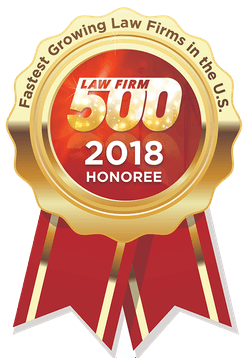It is fair to expect to that when you visit another property, you will be safe from any hazards. In fact, Florida’s laws state that all landowners must take steps to protect visitors from injury. The extent of this legal obligation to each visitor depends on the visitor’s reasons for being on the land. A Clearwater slip and fall lawyer could assess the factors surrounding the accident and work to demonstrate how a property owner may be held liable in court.
Florida law groups visitors into three categories. Depending on which category a visitor is in, the landowner may need to take steps to protect them from hazards. A common danger is when conditions cause a visitor to slip and fall. When this happens, a landowner may be responsible for compensating a person if their injury occurred as a result of the owner’s failure to maintain the property. A dedicated personal injury lawyer could help injured individuals understand their rights, gather vital evidence, and hold negligent landowners responsible for their actions. Contact a qualified personal injury lawyer to learn more about your legal options for compensation.
Legal Classifications of Visitors
Visitors are generally classified into three main categories. Understanding these classifications is vital to a plaintiff’s ability to exercise their rights when injured on another’s property.
The most protected type of visitors is known as an invitee. These are people who enter land for a business purpose such as shopping or to see a movie. Landowners must protect invitees from any hazard that they know about or should reasonably know about. In other words, even if a landowner does not know about a hazard before a slip and fall, they may still be liable if it was reasonable that they should have seen it in a routine premises inspection.
A certain level of protection is also given to guests who enter land for a non-business purpose. This typically applies to guests who are invited into private homes for socializing. These people are known as licensees. The property owners in this instance have a duty to protect a visitor only from all known hazards.
Finally, the lowest burden of protection landowners must give is for trespassers. These are people who enter land without permission. Landowners must only refrain from intentionally or wantonly harming a trespasser to avoid liability. Trespassers often have a very difficult time winning slip and fall cases.
Causes and Effects of Slips and Falls
Slip and fall cases typically result from temporary hazards present on a landowner’s property. For example, a standing pool of water can be difficult to spot for a person who is not familiar with the area and can cause a victim to lose balance and fall to the ground. Other examples of temporary hazards include:
- Loose floor tiles
- Loose carpet
- Broken stairs
- Tracked in rainwater
- Slippery floors due to waxing
- Ice on sidewalks
Any of these hazards can cause a slip and fall that results in a severe injury. Conditions such as broken bones, separated joints, and concussions can cost an individual thousands of dollars. Fortunately, the costs for treating these injuries can be claimed in a slip and fall injury case.
Injured plaintiffs can also claim compensation for any lost wages or mental suffering endured in the incident. A Clearwater slip and fall lawyer could help injured individuals evaluate their losses and demand appropriate compensation in their cases.
Let a Clearwater Slip and Fall Attorney Help
It is easy to assume that if you slip and fall on another’s property, the business or homeowner is automatically at fault. However, winning a slip and fall case is rarely this easy. Plaintiffs need to understand not just how the landowner failed to keep their property safe, but also what rights they are entitled to under the law as a visitor. These factors can vary greatly depending upon a person’s situation.
A Clearwater slip and fall lawyer could help injured individuals understand their legal options, build a case, and pursue compensation for their losses. Compensation can include medical bills, lost earnings, mental anguish, and other damages. Contact a compassionate attorney today to learn more about your rights and responsibilities.









